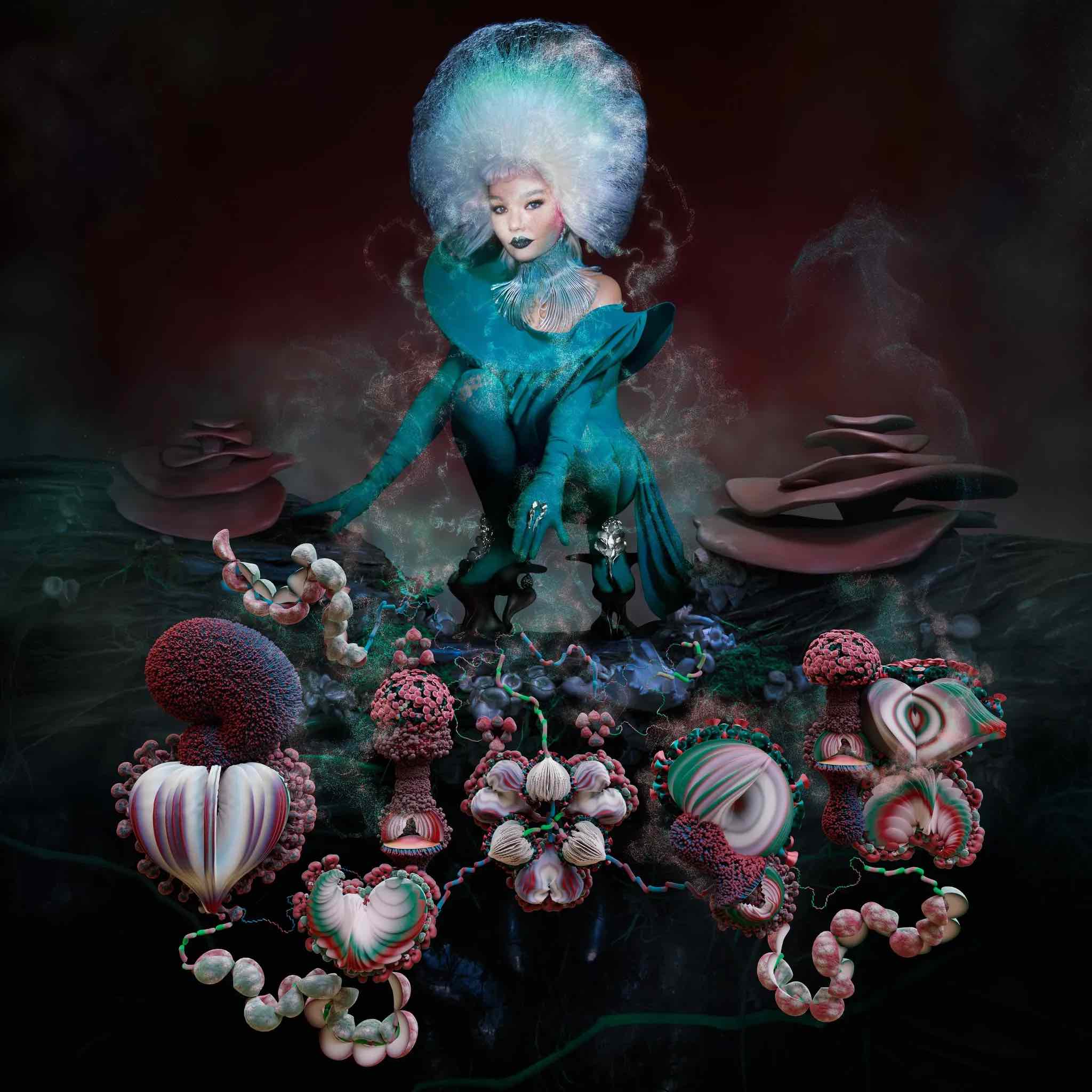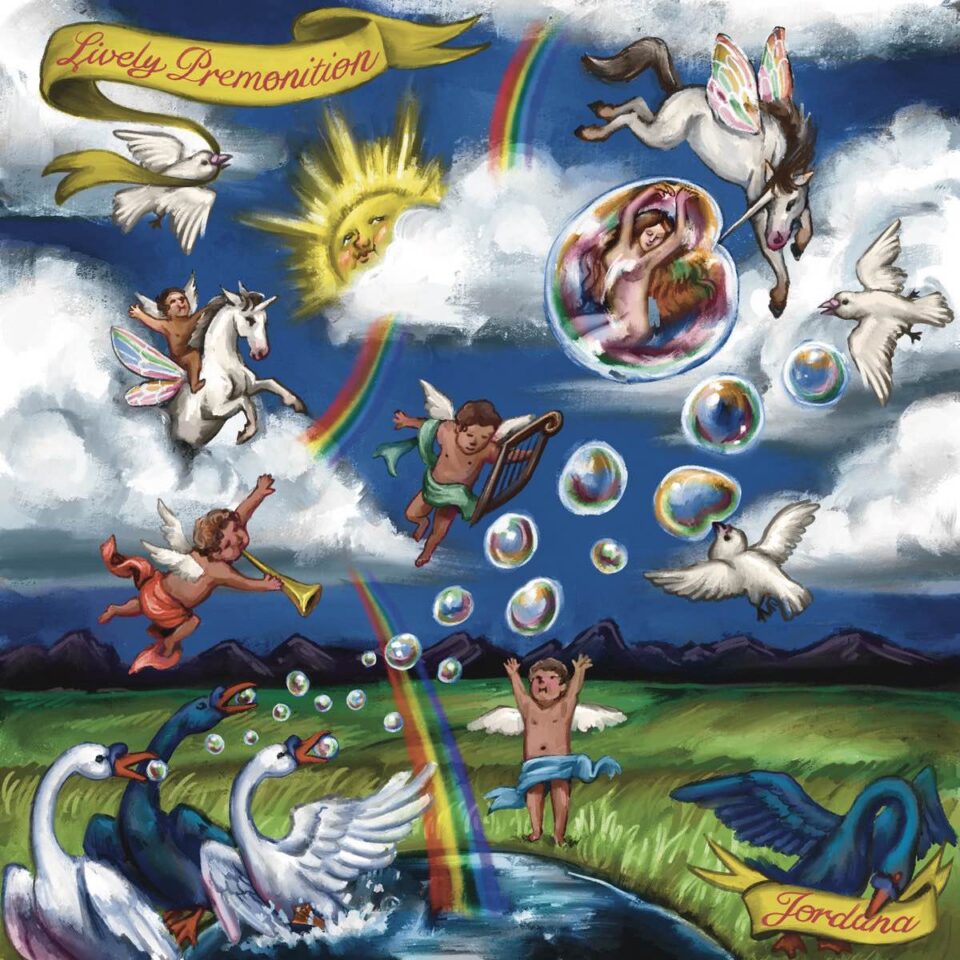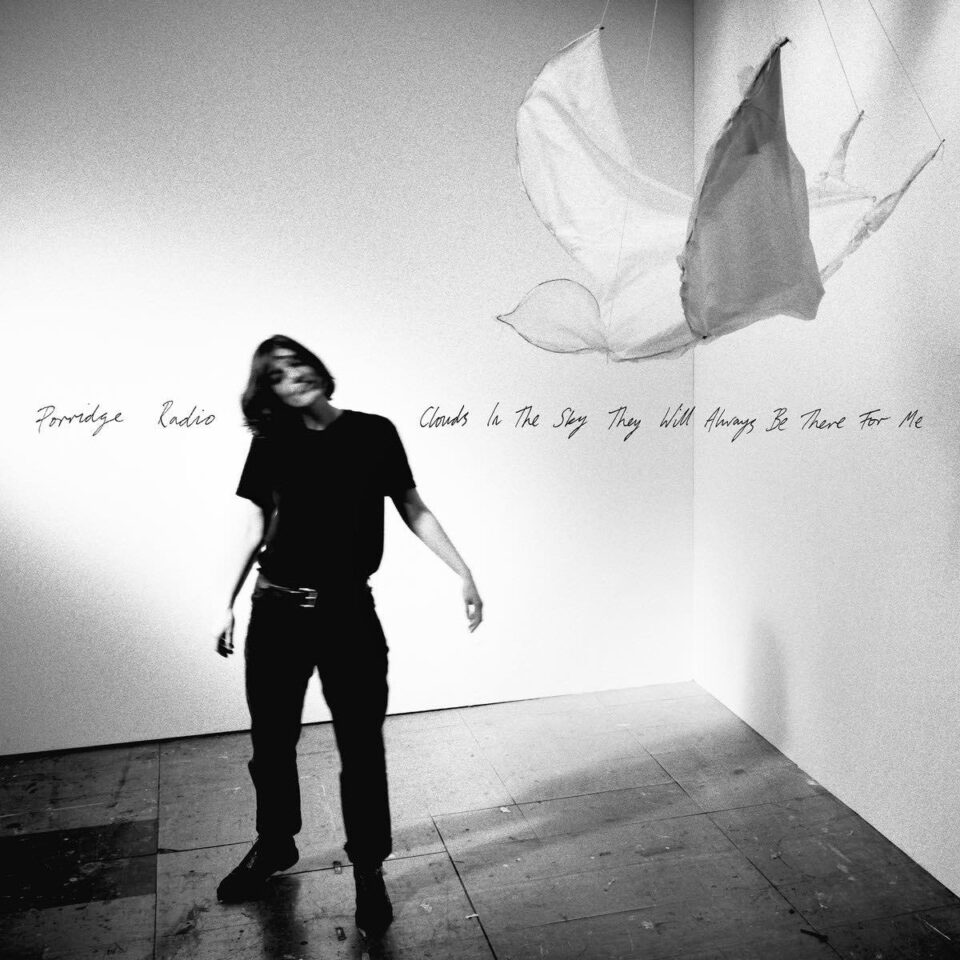Björk
Fossora
ONE LITTLE INDEPENDENT
ABOVE THE CURRENT
Almost every future-forward conceptual artist with a yen for eccentric electronic-based music, pulsating rhythm, soul-baring emotionalism, and amorphous atmosphere owes a debt of gratitude to Björk. Santigold, Rosalía, Tierra Whack, Solange—it would be impossible imagining their success’ trajectory without the Icelandic songwriting/producing vocalist’s daring way with ambience, vibe, and lyrics that cut through joy, sensuality, and grief like none other before her. And while Björk’s newly produced podcast series Sonic Symbolism goes backwards into the making of each of her albums since her days in The Sugarcubes, Fossora—derived from the Latin for “hole digging” or “delving”—pulls up her own roots, replants them, and cajoles them to blossom colorfully anew.
Baring down on the subjects of home, belonging, environment, motherhood, and love, one of the first things you notice about Fossora is the warmth of its instrumentation and the intricacy of arrangements. Like producer/arranger Gil Evans and his relationship with Miles Davis on their place-setting classic Sketches of Spain, once a location is given root each can experiment with their own brand of luster and invention. An environment-place has the widest of berths in which to breathe and stretch, and those who inhabit that expanse move through its chessboard with passion. To not do so is at your peril.
“Are these not just excuses to not connect? / Our differences are irrelevant / To only name the flaws are excuses to not connect,” Björk squeals through opener “Atopos” and its richly darting and swelling team of clarinets and clack-clicking glitches, all co-captained by the Indonesian production duo Gabber Modus Operandi. The languid pool of brass, sometimes clipped and paired off against skittering rhythms on “Ovule,” allows a double-tracked Björk to embrace and kiss—warily, always with one eye open and skeptical—while “a broken heart endures.” Borrowing ever so slightly from Laurie Anderson’s breathalyzing “O Superman,” she creates a wordless vocoder choir with dial tones for drums on “Mycelia,” and leads a choir of angels in a capella song in grieving for her environmentalist mother in “Sorrowful Soil” and its haunted, stringed, chiming counterpart “Ancestress.”
As she sings the lyrics “Has a saintly glow holier than thou / Erased my shadow?” on “Victimhood,” Björk creates something horrific and heavenly at once, an elegy and epiphany that goes with the energy of fungi—the central, sensual metaphor for Fossora—and all that it surveys. If 2022 has a best and most innovative album (while remaining gorgeously melodic, true to form, and advancing an artist’s objective), it’s to be found at the feet and hands of Björk’s Fossora.









